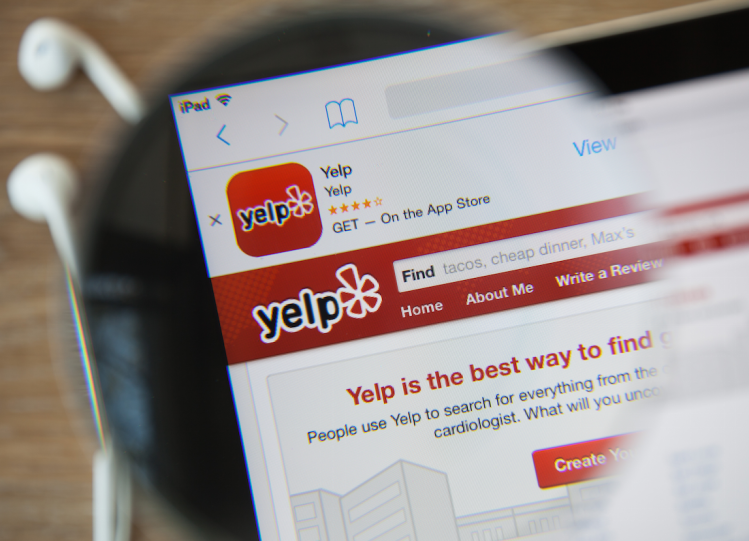Yelp failed to deliver on earnings this quarter, causing its stock to plummet 17 percent in after-hours trading.
The problem for investors may be that Yelp is hunkering down on its local ad business as competition from Google threatens to eat its lunch.
Today, Yelp announced a loss of $1.3 million (or earnings of -$0.02) on revenue of $133.9 million for the second quarter of 2015. Analysts expected earnings of $0.01 on revenue of $133.48 million.
Yelp’s first-quarter earnings were also less than satisfactory. The company reported a net loss of $1.3 million on revenue of $118 billion, just under analyst estimates. That resulted in the company’s stock tanking 13 percent. Weeks later Yelp was reportedly exploring a sale, which brought its stock price right back up. Since then, however, the stock has been on the decline.
In early July, Bloomberg reported that Yelp had put its search for a buyer on hold, pushing Yelp stock down again.
Investors were looking for plans for the future. Yelp’s business is easily imitable. Though its large stock of business information and reviews has kept competitors at bay, that may no longer be the case.
Earlier this month, Google announced it would be building out business information cards complete with client reviews. This a two-fold issue for Yelp, because it’s a competitive product from a major tech company and also the search giant drives most of Yelp’s traffic.
Foursquare, which also boasts a trove of business information, has been striking up deals with major tech companies and building out its ad technology.
Meanwhile, Yelp has yet to introduce new or innovative products to its antiquating platform (though it did acquire food delivery startup Eat24 earlier this year). But investors want to know how Yelp is going to combat Google.
Business isn’t all bad, of course — Yelp still has a growing business. The company is still attracting new users both on mobile and desktop. In fact, for the first time ever, Yelp’s mobile user base actually surpassed its desktop users, by four million. The company also notes that 70 percent of new reviews and photos come in through its mobile app. Additionally, local advertising revenue saw a 40 percent boost year-over-year.
But investors still have good reason to be unhappy (pulled straight from Yelp’s earning statement):
“Our core local advertising business remains strong, and we are investing in Yelp’s future,” added Rob Krolik, Yelp’s chief financial officer. “We expect local advertising will continue to be our primary driver of growth as we work towards our goal of generating one billion dollars of revenue in 2017.”
This quote says it all. Yelp doesn’t have major plans to expand its revenue sources or find new ways to stay competitive. What’s more, by closing its brand advertising program, Yelp is going to see short-term losses in revenue. That may pay off in the long run, by making way for more lucrative advertising, but it also may not be enough to keep the company growing.
As noted earlier, Yelp is up against increasingly stiff competition. It is no longer good enough to rely on local advertising as its biggest source of revenue — investors want to see Yelp either innovate or sell. Failing that, investors will be selling off stock, and selling off fast.


